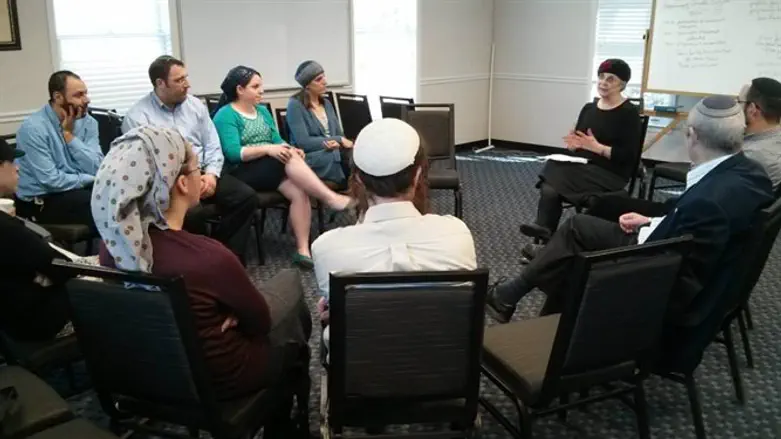
Dvar Torah by Gabi Raiss, former Shaliach in Cape Town (2001-2002), currently a Tour guide at the Tower of David Museum (gabzy22@gmail.com)
In the beginning of Parshat Matot, the Torah says: "Moses spoke to the heads of the tribes of the children of Israel, saying: This is the thing the Lord has commanded. If a man makes a vow to the Lord or makes an oath to prohibit himself, he shall not violate his word; according to whatever came out of his mouth, he shall do" (Numbers Chapter 30, verses 2-3)
There is a question why the laws of vows are given directly to the heads of the tribes, and why the Torah emphasize that 'This is the thing the Lord has commanded'. Every once in a while one makes promises, but that does not mean one does it for the sake of heaven.
One of the most important attributes the human kind have is the ability to speak. This is what distinguish us from the rest of the animals. Man is unique in his ability to express what he thinks through speech. This miraculous ability can elevate one to amazing heights, or to humiliate him all the way down. In the book of Proverbs (Chapter 18, verse 21) is written: "Death and life are in the hand of the tongue" - the tongue is responsible for this very important quality of mankind.
The Netziv explains that usually it is when one is in distress that he takes an oath. When one is in distress he turns to God to ask for help in return for a good deed from his side. A lot of people often say: if I'll come through the problem I'm having, I'll do something good' - I'll give charity, I'll volunteer or do anything positive. When one needs help, he can promise anything to get it.
The Netziv continues to explain that this may lead people to direspect oaths and vows. One may rationalize that since he only made his promise under duress, he is not obligated to fulfill it. This is why the Torah emphasize that 'This is the thing the Lord has commanded' - one must take his vows seriously.
But still the question remains - why are he laws of vows directed to the heads of the tribes?
In my opinion the reason is that political leaders have a higher tendency to make promises. In order to gain popular support, leaders are willing to promise to take care of everyone interests, even though sometimes those interests may contradict each other, and not all promises can or will be fulfulled. This is why the Torah addresses the heads of the tribes specifically - because they are most likely to not stand behind their commitments.
I would like to suggest another idea about vows and 'the thing the Lord has commanded'. In verse 2 it is written that one shall not violate his word. In Hebrew it is written "Lo Yachel Devaro". The meaning of 'Yachel' comes from the semantic sphere of sanctity. It is to profane or violate holiness.
I would like to suggest that vows are the easiest way to turn a simple, mundane, life to a holy one. When one takes an oath and does it truly and for the sake of heaven, he takes and everyday action and gives it a whole new meaning. He creates a new reality. Now it is not just something one says, now 'This is the thing the Lord has commanded'.
Torah Mitzion had their sendoff ceremony for new shlichim using Zoom on Sunday night, enabling shlichim from all over the world to participate. The organization provides Jewish communities with high-impact, dynamic, educational shlichim who learnt advanced Torah studies and served in the IDF, thus exemplifying an idealistic model of commitment to both Judaism and Zionism. Their duties in the communities include one-on-one (chavruta) learning, formal and informal education, community events and hosting. Torah Mitzion invites every Jew with a thirst to learn and connect to Judaism and Israel.